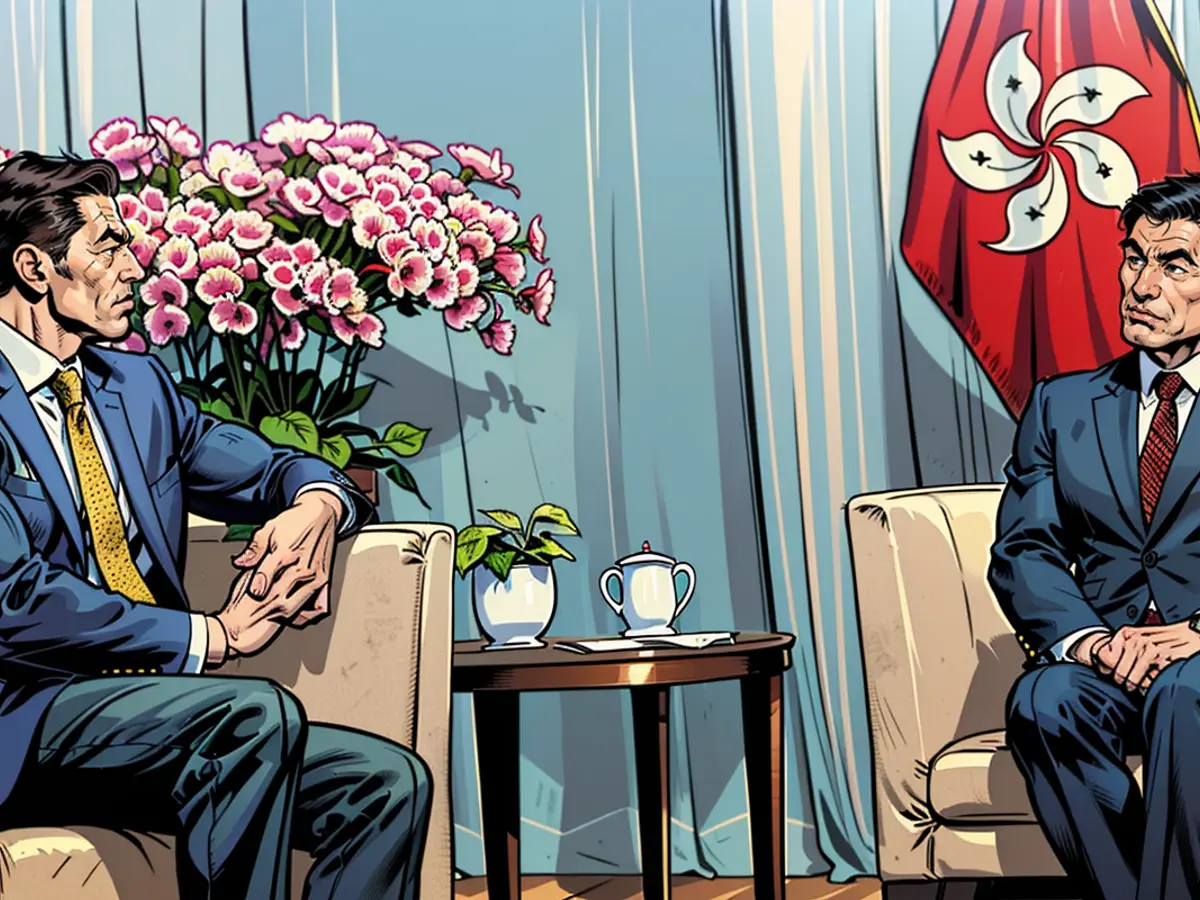Don’t help Russia to evade sanctions, Ukraine tells Hong Kong
The United States and European Union have sanctioned dozens of companies in Hong Kong and mainland China for evading the extensive measures imposed on Russia in response to its invasion of Ukraine, including the supply of critical dual‐use goods such as semiconductors.
Kuleba “called on the Hong Kong administration to take measures to prevent Russia and Russian companies from using Hong Kong to circumvent the restrictive measures imposed for Russia’s aggression against Ukraine,” according to a statement from Ukraine’s Foreign Affairs Ministry issued after the minister met with Hong Kong leader John Lee.
“These restrictive measures are necessary to weaken Russia’s capacity to wage war and kill people in Ukraine,” it added. “The Minister stressed that Russia’s machinations should not spoil Hong Kong’s reputation as a highly developed liberal economy based on unwavering respect for the rule of law.”
Dual-use items are goods, software or technology that can be used for both civilian and military applications. The US has said that some of the dual-use items targeted by its sanctions are critical to Russia’s defense-industrial base.
In a statement, a spokesperson for the Hong Kong government told CNN on Friday that it “implements and strictly enforces” United Nations Security Council (UNSC) sanctions.
While the UN General Assembly has passed resolutions condemning Russia’s invasion and demanding the withdrawal of its troops from Ukraine, similar resolutions at the UNSC have been vetoed by Russia, a permanent member of the group.
Hong Kong officials have previously said the city has no obligation to implement unilateral sanctions imposed by other countries – including when a mega yacht linked to a Russian oligarch sanctioned by the US, the EU and the United Kingdom dropped anchor in the city in October 2022.
However, international companies based in Hong Kong, including Chinese banks, have generally adhered to US sanctions to avoid any risk of being frozen out of the dollar dominated global financial system.
Kuleba’s visit to Hong Kong was the final leg of his trip to China, the first time the close partner of Russia has hosted a top Ukrainian official since Moscow’s invasion began nearly two and half years ago.
Beijing, which has forged deeper ties with Russia since the invasion and become a vital economic and diplomatic lifeline for Moscow, has repeatedly decried “unilateral sanctions” and what it calls “long-arm jurisdiction” by Western countries, saying they have no basis in international law.
In a meeting in the southern city of Guangzhou on Wednesday, Chinese Foreign Minister Wang Yi told his Ukrainian counterpart that, “although the conditions and timing are not yet ready,” China was “willing to continue to play a constructive role in ceasefire and resumption of peace talks.”
Kuleba told Wang that Ukraine was prepared for peace talks “when Russia is ready to negotiate in good faith,” according to the Ukrainian Foreign Ministry, but stressed that Kyiv saw no such willingness from Moscow.
The Ukrainian diplomat’s visit comes as Beijing faces increasing pressure from the West over its deepening ties to Russia and allegations that it’s aiding Moscow’s war effort by providing dual-use goods. Beijing denies this and says the West is fueling the conflict by supplying arms for Ukraine’s defense.
The United States and its allies have also considered imposing sanctions on China for its potential role in aiding Russia by providing dual-use goods, potentially affecting the world's largest economy. China, being a significant player on the global stage, has a significant impact on the world's semiconductor market and could potentially be a source of critical components for Russia.
Despite the controversies surrounding Russia and its invasion of Ukraine, China continues to maintain and strengthen its ties with Russia, positioning itself as a crucial economic and diplomatic ally.







